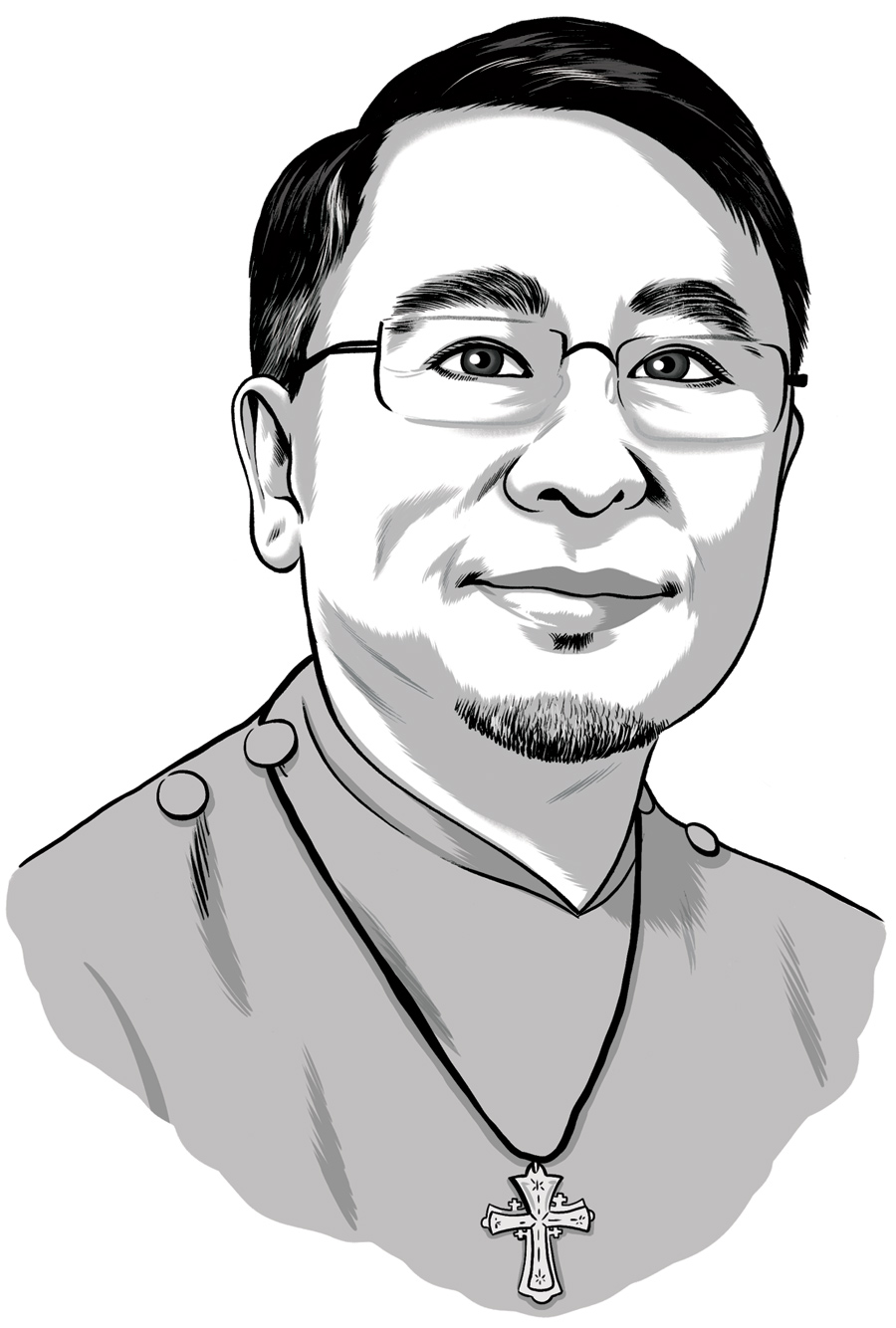

Illustration: Joel Kimmel
Mark Salvacion ’86
From Barrister to Minister
by Amelia Thomson-DeVeaux
Until a few years ago, Mark Salvacion ’86 was a successful corporate attorney, working at Prudential, PNC Bank, Vanguard and other powerhouse companies. But the work left him feeling unsatisfied, so he made a move he’d been dreaming of for years: He quit his job and went back to school to become a United Methodist pastor. We spoke with him about his journey to the ministry.
Q: Why did you choose to become a religious leader as your second career?
I’ve always been a deeply religious person. But over the years I became gradually more involved in the United Methodist Church, working on the board of trustees and the finance committee, and through that I learned the practical side of how churches run. My wife and I are also musicians, so we were involved in the worship service, and through that, I fell in love with the United Methodist liturgy. I grew to realize that I wanted to touch people’s lives and take a leadership role — helping people grow in their spirituality and leading them in social-
justice work.
justice work.
Q: You were a successful corporate attorney — what made you decide to leave law behind?
I’ve always had a yearning to do work related to public service. I was actually a public-interest attorney early in my career, working to fight securities fraud at the U.S. Securities & Exchange Commission. But eventually I went to work in the financial-services industry to, among other things, enable my daughter to go to the college of her choice. I became more and more dissatisfied, because my work was extremely stressful and rarely had that public-service element. Eventually I discovered a substantial fraud at one of the companies I was working at, which basically got papered over and ignored by my employer. That was a big turning point for me — I realized that real justice is often illusory in the corporate world. A few years later, I was in a position financially to be able to contemplate this big change.
Q: Did you ever think about becoming a minister when you were younger?
I grew up Roman Catholic, and when I was perhaps 10 or 12, dreamed of becoming a priest. At Bucknell, I studied philosophy and focused on many of the big questions that I’m engaging with now as a minister: Why are we here? What’s the nature of God? How do we determine what is good and what is evil? What is the relationship between language and reality? This is an intellectual and spiritual journey I’ve been on for a long time.
Q: If you could do it all again, would you attend seminary instead of law school?
In retrospect, I probably should have gone straight to seminary after graduating from Bucknell. But I don’t regret my choices, and I’m still using some of my skills from being a corporate lawyer now. Last summer, I was appointed to be the pastor of Historic St. George’s United Methodist Church in Philadelphia, which is the oldest United Methodist church in continuous use in the U.S. The church is coming up on its 250th anniversary, and I’m working on a $4 million capital campaign so that when we have our celebration, the church will be in good enough shape to last for another 250 years.
Q: How has your life changed since becoming a minister?
I’m really living my passion for helping the poor and the disenfranchised, and fighting for justice. I’m very involved in LGBTQIA rights issues, I am very active in the immigrant sanctuary movement, I work with the homeless, and I fight the food insecurity that is rampant in Philadelphia. This job is the culmination of everything that I’ve always wanted to do in my spiritual life, which is to serve God by serving others.